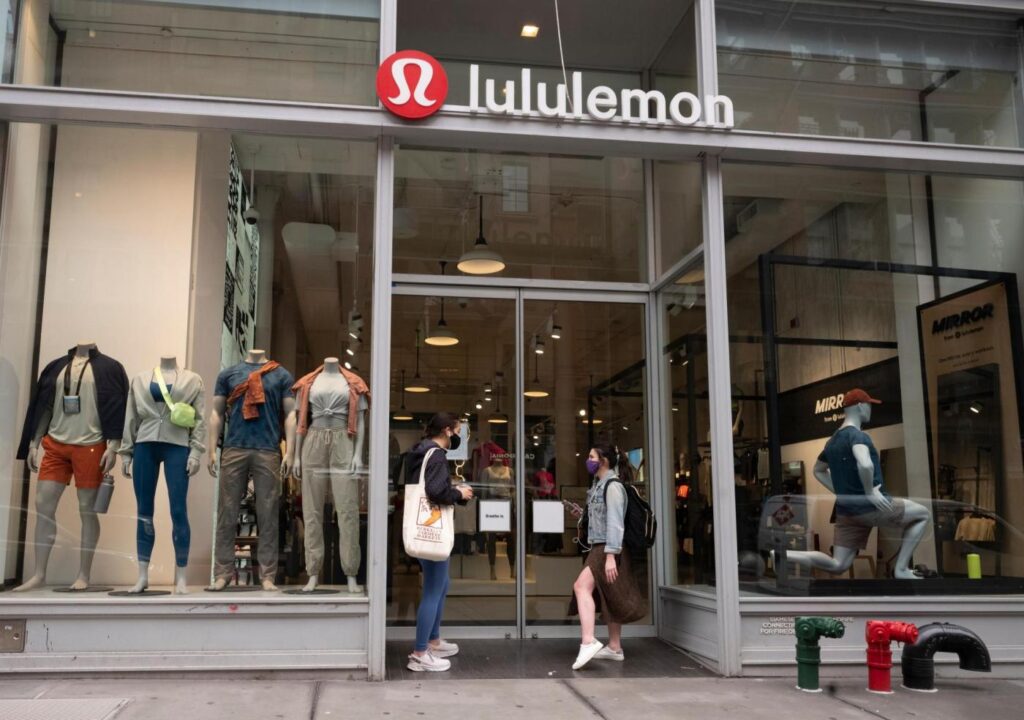
NEW YORK (AP) — The rising trend of fashion “dupes,” or affordable imitations of luxury apparel, has landed Costco in legal hot water. Lululemon filed a lawsuit against the wholesale giant on Friday, accusing it of selling cheaper versions of its popular athleisure wear. This legal action underscores a broader industry challenge as social media amplifies the culture of dupe shopping.
The lawsuit claims that Costco has been unlawfully trading on Lululemon’s reputation by offering duplicates of its high-priced apparel. Among the items cited are Lululemon’s Scuba hoodies, Define jackets, and ABC pants. Lululemon’s complaint highlights a specific example: the Hi-Tec Men’s Scuba Full Zip, which Costco lists for $19.97, a stark contrast to Lululemon’s pricing.
The Rise of Fashion ‘Dupes’
The phenomenon of fashion dupes is not new. For years, consumers have had access to more affordable alternatives to luxury brands, often through retailers’ house brands. However, the advent of social media platforms like TikTok has propelled this trend to new heights. Influencers frequently guide their followers to these budget-friendly alternatives, making the practice more mainstream.
Consider the case of Hermès’ $1,000 fuzzy slippers, which Target offers a version of for just $15. Similarly, Quince, an online retailer, sells a $99 version of Bottega Veneta’s $2,800 hobo bag. These examples illustrate the growing appetite for luxury aesthetics without the hefty price tag.
Legal and Ethical Implications
While these dupes are popular among consumers, they can be a source of frustration for the original brands. Hermès Executive Chairman Axel Dumas expressed his discontent over a viral “wirkin” bag that mimicked the iconic Birkin bag, yet he acknowledged the enduring appeal of the original design.
According to Alexandra Roberts, a professor of law and media at Northeastern University, the term “dupe” itself does not inherently indicate legality. She notes that while some dupes may infringe on copyright or trademark laws, others merely position themselves as less expensive alternatives without making false claims about their origin.
“With fashion, in particular, we’re going to get into some thorny questions,” Roberts said, highlighting the complexities of intellectual property rights and their enforceability.
Previous Legal Battles in the Fashion Industry
Legal disputes over fashion dupes are not uncommon. In December, Benefit Cosmetics lost a lawsuit against E.l.f. Cosmetics over a mascara product that bore similarities to its own. The judge ruled in favor of E.l.f., with CEO Tarang Amin stating that their product offered better value while maintaining its distinct brand identity.
Similarly, Lululemon’s lawsuit against Costco is not its first legal encounter over alleged knockoffs. In 2021, Lululemon sued Peloton over “copycat products” in its clothing line. The companies later resolved the dispute with a partnership agreement.
Potential Outcomes and Industry Impact
Lululemon’s current lawsuit against Costco could have significant implications for both companies. The outcome may influence future legal strategies for brands facing similar challenges from retailers. If Lululemon succeeds, it could set a precedent for how brands protect their intellectual property against dupes.
Roberts suggests that Lululemon’s claims may hold weight, especially if consumer confusion over product origins can be demonstrated. However, she remains skeptical about certain aspects, such as the functionality of specific design elements cited in the lawsuit.
“My first reaction as a trademark expert is that looks pretty functional,” Roberts commented on Lululemon’s claim regarding the design of its ABC pants.
The Future of Fashion Dupes
As the popularity of fashion dupes continues to grow, brands may need to adapt their strategies to protect their intellectual property and maintain consumer trust. The legal landscape surrounding dupes is complex, with each case presenting unique challenges.
For consumers, the allure of luxury at a fraction of the cost remains compelling. However, as brands like Lululemon take legal action, the boundaries between inspiration and imitation may become more clearly defined. The outcome of this lawsuit could signal a shift in how the industry navigates the ever-evolving world of fashion dupes.
Costco has yet to comment on the lawsuit, leaving industry watchers and consumers alike eager to see how this legal battle unfolds.







